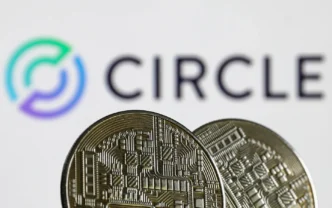Anna Patterson, the former head of Google’s AI-focused fund Gradient Ventures, has launched a new venture aimed at solving one of the biggest pain points in artificial intelligence development: testing. Her latest startup, Ceramic.ai, backed by tech giants IBM and Samsung, is building advanced tools to improve how AI models are trained and tested.
Patterson’s insight came from her time at Gradient, which she launched in 2017 as a vice president of engineering at Google. Over six years, she worked closely with hundreds of AI startups—including billion-dollar names like Lambda and Writer. Despite their success, Patterson noticed a recurring issue: scaling AI testing was a massive challenge for nearly everyone outside the biggest tech companies.
“Only a few tech giants could afford the infrastructure needed for high-performance AI,” she said. “Everyone else was bogged down by compute costs and slow, outdated tools.”
That realization drove her to build Ceramic.ai—a platform designed to dramatically speed up AI testing while reducing infrastructure strain. According to Patterson, today’s AI tools can only handle a few thousand words at a time, making them inefficient for large-scale model training. Even throwing more GPUs at the problem isn’t enough—and can cost a fortune, with some Nvidia H100 chips priced over $25,000 each.
Ceramic.ai changes that. Patterson claims their platform can process up to 96,000 words of context and makes AI training 2.5x faster on H100 GPUs. And unlike traditional methods, Ceramic gets faster the more data it handles.
“This is a hands-on build. It’s exciting to tackle a problem I’ve seen again and again—and now, to create the solution,” Patterson shared.
The startup emerged from stealth mode this month with a $12 million seed round. Investors include IBM and Samsung Next, whose industry expertise is as valuable as their capital. Patterson said IBM’s deep roots in enterprise AI and Samsung’s focus on hardware acceleration have been instrumental in shaping Ceramic’s early roadmap.
With fresh funding, Ceramic is now expanding its engineering team, onboarding enterprise clients, and refining its product’s training and inference capabilities. The company is also partnering with AI infrastructure providers, including Lambda—one of Gradient’s portfolio companies.
Looking ahead, Patterson plans to raise a Series A round later this year. But for now, she’s relishing the shift from investor to founder—a role she knows well from her past life as co-founder of search engine startup Cuil.
“At Gradient, I helped startups scale with Google’s resources. With Ceramic, every decision is personal—every step is about building something from scratch and making it work,” she said. “It’s a different kind of thrill.”












